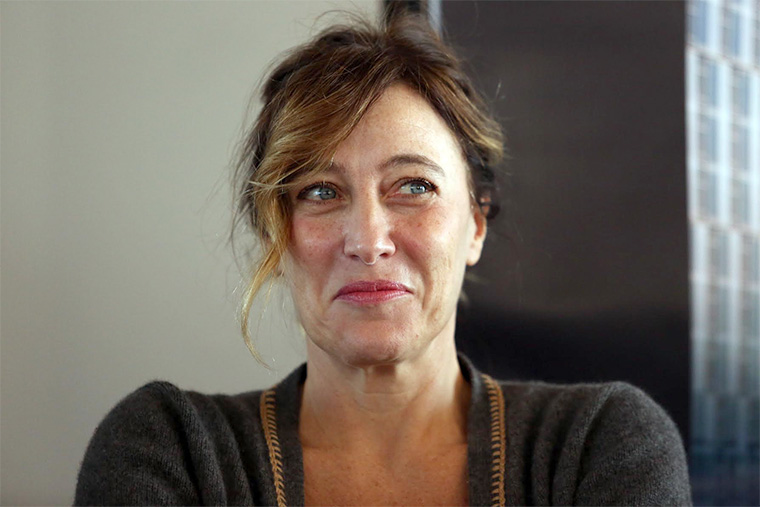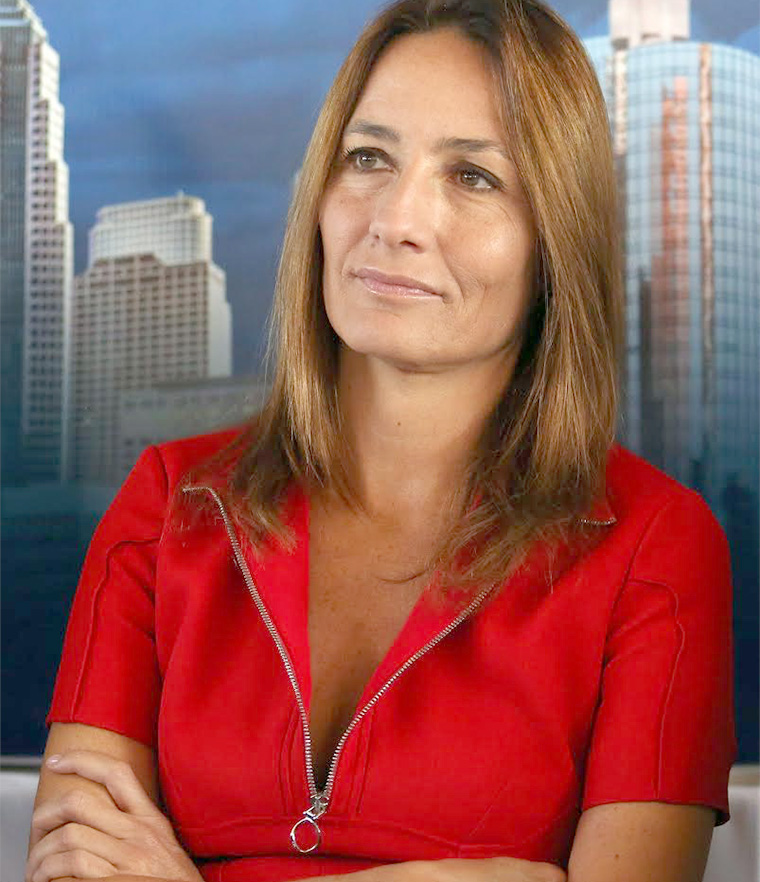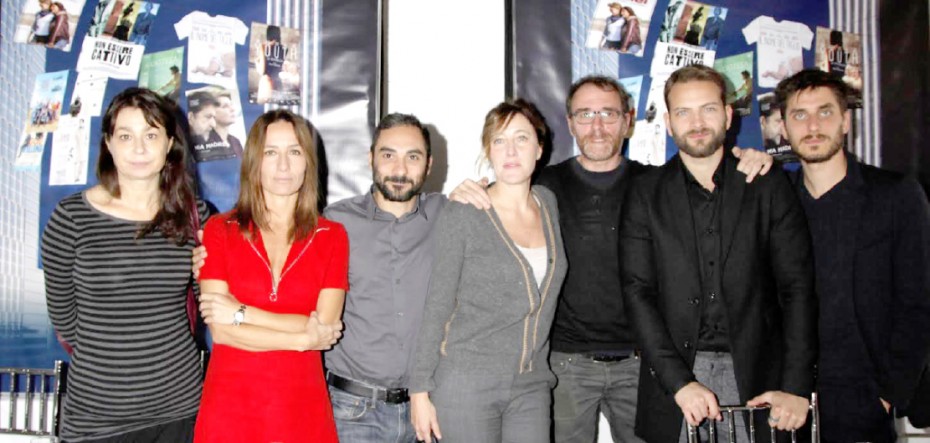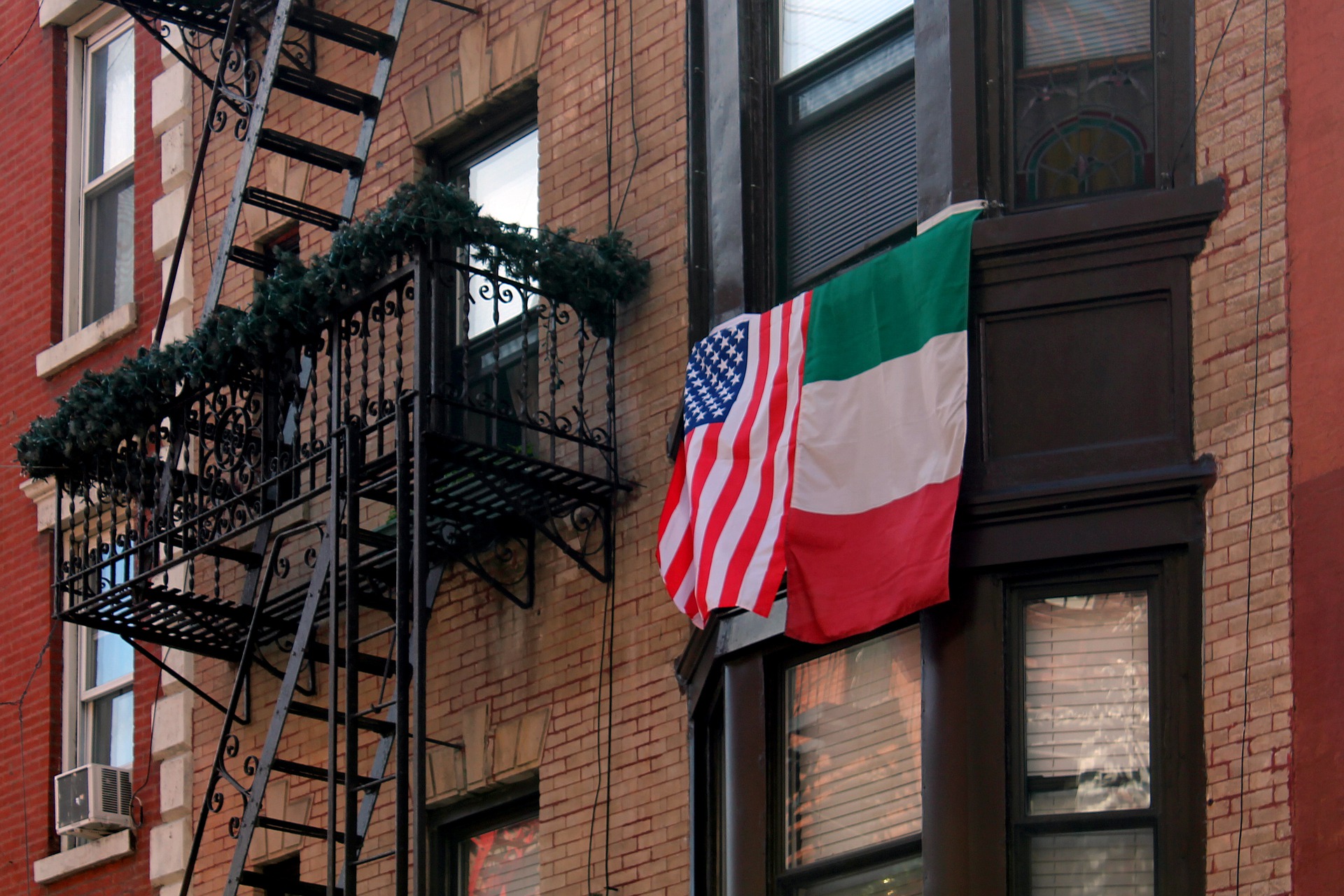Cinema Italian Style (from November 12 through 16), yearly celebration of Italian cinematic art – co-presented by the American Cinematheque and Luce Cinecittà – turned eleven years old, with the 2015 edition.
After an introduction from the Consul General of Italy, Antonio Verde, the artistic director, Laura Delli Colli, acting as moderator at the opening press conference – held at Mr. C Hotel on November 11 – introduced the Italian delegation of directors: Francesca Archibugi, Piero Messina and Maria Sole Tognazzi; actor/filmmaker: Valeria Bruni Tedeschi; actors: Alessandro Borghi and Luca Marinelli, and actor/producer: Valerio Mastandrea.
As Delli Colli pointed out: eleven is a significant number this year, since the same amount of Italian feature length films were selected to be screened.
Of those, three are directed by female directors: An Italian Name (Il Nome del Figlio, by Francesca Archibugi, 2015); Me, Myself and Her (Io e Lei by Maria Sole Tognazzi, 2015) and Latin Lover (by Cristina Comencini, 2015), starring Valeria Bruni Tedeschi, recipient of the Cinema Italian Style Award for the success of her international career, both as an actress and a filmmaker.
Doing some basic math, 3 out of 11, totals to 27 % of the screened features, realized by women.

That may sound like a low percentage, but we have to take into account how most of these artists are universally acclaimed as “maestros”: Francesca Archibugi, who – since her feature length directorial debut, Mignon Has Come to Stay (Mignon è partita, 1988), winner of five David di Donatello, as well as other international awards – has been chalking up one success after the other.
Cristina Comencini (not in attendance) who – upon her directorial debut with Zoo (1988) – entered the “artistic Olympus”, in 2005, with The Beast in the Heart (Don’t Tell) (La bestia nel cuore), adapted from her own novel of the same name. Her movie garnered a series of prestigious nominations: particularly, for Golden Lion prize at the Venice International Film Festival (2005), and as Best Foreign Language Film in the 78th Academy Awards (2006).
The other two female filmmakers are catching up rapidly: Maria Sole Tognazzi, who debuted behind the camera, in 2003, with Past Perfect (Passato Prossimo), winning the Italian Silver Ribbon and Italian Golden Globe. She almost gained a nomination for the Oscars 2014 with A Five Star Life (Viaggio Sola, 2013), but ultimately her film gave in to Sorrentino’s The Great Beauty.
Valeria Bruni Tedeschi, who aside from pursuing a brilliant acting career both in Italy and France, in 2003, directed the highly successful, Il est plus facile pour un chameau…(È più facile per un cammello…), which won the French Louis Delluc Prize, as well as two Tribeca Film Festival awards, both for directorial debut and for acting. Since then, she has been gradually establishing a solid reputation as well-rounded filmmaker.

In Hollywood, often times, female directors, the likes of Sofia Coppola and Kathryn Bigelow, are perceived as a whole with the prominent male figures around them, before they can make their unique voice be heard.
I asked Maria Sole Tognazzi how difficult it is for a woman to break through in the Italian movie industry, without being associated to an important male figure. In her case, Ugo Tognazzi, one of the most renowned protagonists of the so-called “Commedia all’Italiana” (Italian comedy style):
“I have never felt the weight of my last name during my career as director. It might be because I was very young when I started as an assistant director — after many years, becoming a director happened naturally and was appreciated. It would have been different if I had decided to become an actress, considering that my father is one of the most beloved Italian actors. I have always preferred being behind a camera though, out of a sense of shyness and necessity.
I think that we shouldn’t talk about “women directors,” just like we don’t use the label: “man director”. I think that the most important quality is honesty. I believe in the power of an author and of his/her point of view. I believe in a more personal way of making films, without the limit of definitions. Just like it should be in everyday life. Just like it is in my last movie.”
Along with the feature length films, five shorts were selected to be screened during Cinema Italian Style, in collaboration with Roma Creative Contest, the International Short Film Festival organized by the Arts Association Images Hunters.
Considering how, 2 out of the 5 shorts screened, are directed by women, corresponding to 40% of the total, there seems to be a positive trend. Hopefully, the next generation of filmmakers will feature an ever more equal ratio among female and male artistic voices.






























